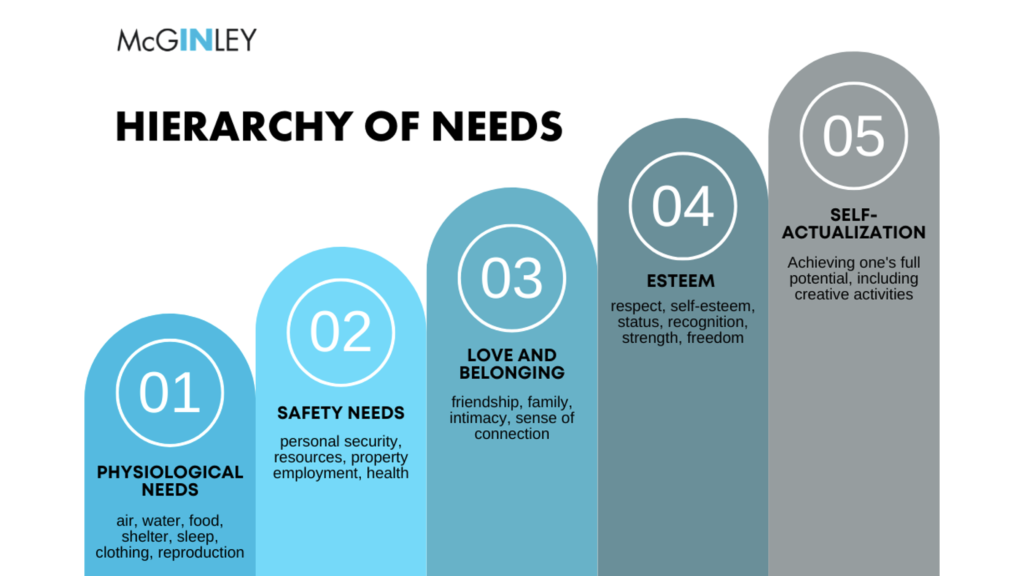The cost-of-living crisis is affecting everyone. With basic goods, energy and fuel, and mortgage costs or rent all rising, many of us are being pushed to the edge of what we can afford. In recent months, McGinley Support Services investigated the crisis and the potential effects it can have on the wellbeing of staff, plus the retention of workers. The work aims to provide some practical advice to managing these issues.
Cost of living pressure for the precariat
Inflation has been rising since early 2022 and could hit to 13% by Q1 2023. Meanwhile, the energy price cap is due to rise to £4300 by April 2023 now the proposed cap of £2,500 has been scrapped. According to HMRC and the Office of National Statistics (ONS), the average person in the UK, who earns a salary of £24,600, is expected to be around £4,500 worse off per year.
Unsurprisingly, many workers at all levels are extremely worried about their finances.
“We all live to our means,” says John Jebson, McGinley’s OHSE Director. “This crisis will also affect higher paid managers, planners, and supervisors who may have larger mortgages and credit. We had several years of low interest rates and low-cost borrowing, so people got used to that but now face high increases”.

However, it’s the lower earners who will be impacted most. “All credit will get harder to obtain and become more expensive. As a provider of contingent labour, McGinley is concerned inflation is disproportionate to those workers with poor credit or lower earnings”.
John added, “workers on low hours with commitments will be particularly affected. Those on zero hours contracts – sometimes referred to as the precariat class – are more likely to struggle to get mortgages and loans, or any credit, and often are charged a higher rate if they can get it”.
Safety and wellbeing amidst volatility
The predicted impacts on the safety and wellbeing of workers make for stark reading. The research – carried out by McGinley together with labour desk partners Danny Sullivan Group and VGC Group focused on the Construction sector, finding that over 44% of workers cite financial worries as their biggest cause of mental distress. And this is compounded by finding that 84% do not feel comfortable to speak to their colleagues or employers about this.
Many workers, then, are suffering in silence and bringing that distress with them to work. People in crisis may act in unpredictable ways and make decisions that are not compatible with safety. This can manifest itself in the form of workers who may be easily distracted while operating dangerous machinery, or construction staff taking risks that they usually would not. Fatigue is also a major problem for staff who are under a heavy mental load, as sleep can affected by stress.
Intervention now will provide more stability for workers, which reduces mental health problems later. The link between finances and risky behaviour was seen clearly during the covid pandemic, when 54% of construction workers polled admitted that – due to the financial implications of taking time off – they would go to work even if they tested positive for Covid-19.



Training boosts staff retention
The effects of the current economic climate go beyond safety and wellbeing in the workplace. The situation also has implications for the recruitment and retention of staff throughout the rail industry.
“If a worker has a family or other responsibilities and cannot meet the basic needs to support this, they may be forced to find other ways to cope” says John. “Examples may include moving jobs for higher rewards in other industries, which worsens labour shortages, or workers doing second jobs to support their income, causing greater fatigue”.
“The financial crisis may also leave companies less able to invest in training and upskilling, meaning workers miss the opportunity to earn more had they been trained. Those skills that remain and are in scarce supply are in high demand, which is good for those individuals but bad for industry, especially those without fixed contracts and commitments.”
More commitment to workers needed
Thankfully, the research also identifies measures clients and contractors can take to ensure their workers are safe and not being overwhelmed by the current financial climate. Communication is key – firms must talk to their workforce about their experiences of the cost-of-living cost increases, and ask what can be done to help.
The research was presented to Network Rail at a Supply Chain conference, with many questions focussing on what action can be taken now. This needs tackling across the whole supply chain in a collaborative way, including potential contractual changes and commercial rate adjustments.
“We know that wages for many roles have remained stagnant for several years so most working people in our industries have seen a gradual erosion of their real earnings. Minimum wage and living wages are often talked about, but we need to understand if our workforce earns enough to survive. Providing a higher hourly rate helps but not if only a few hours are available.”
Consistent engagement with staff is also crucial. Ensure front line supervisors are equipped to supply key information or government updates, or invite speakers to attend worksites to provide practical advice for workers.
Firms can also consider more practical assistance. For example, some companies in infrastructure have introduced cost of living payments to recognise the issues and demonstrate they care.
McGinley’s research refers to Maslow’s Hierarchy of Needs – an assessment tool intended to reflect the universal needs of a society. Meeting level 2 requirements is crucial in all walks of life, says John.
“Without some practical solutions, our workforce and their families may be forced to look for other work or sectors or make some poor behavioural choices. We know when someone is in financial crisis it can be overwhelming. Their attention will not be on their job and their mental health will suffer.”
“There are solutions, ranging from fixed hours and better rates, to employment benefits such as tax advice, childcare and education. Overtime can be an option but remember the work life balance”.
Look out for more information in the next edition of Safety in Rail, or contact John Jebson.
McGinley Support Services is one of the UK’s largest specialist recruitment businesses providing the rail sector with permanent, contract, and temporary staff at all levels. www.mcginley.co.uk
Advice and support for construction and railway workers facing financial hardship can be found at:
Lighthouse Club – www.lighthouseclub.org – Tel: 0345 609 1956
Railway Benefit Fund – www.railwaybenefitfund.org.uk – Tel: 0345 241 2885
Anyone suffering mental distress can find help and support with the Samaritans – www.samaritans.org – Tel: 116 123

